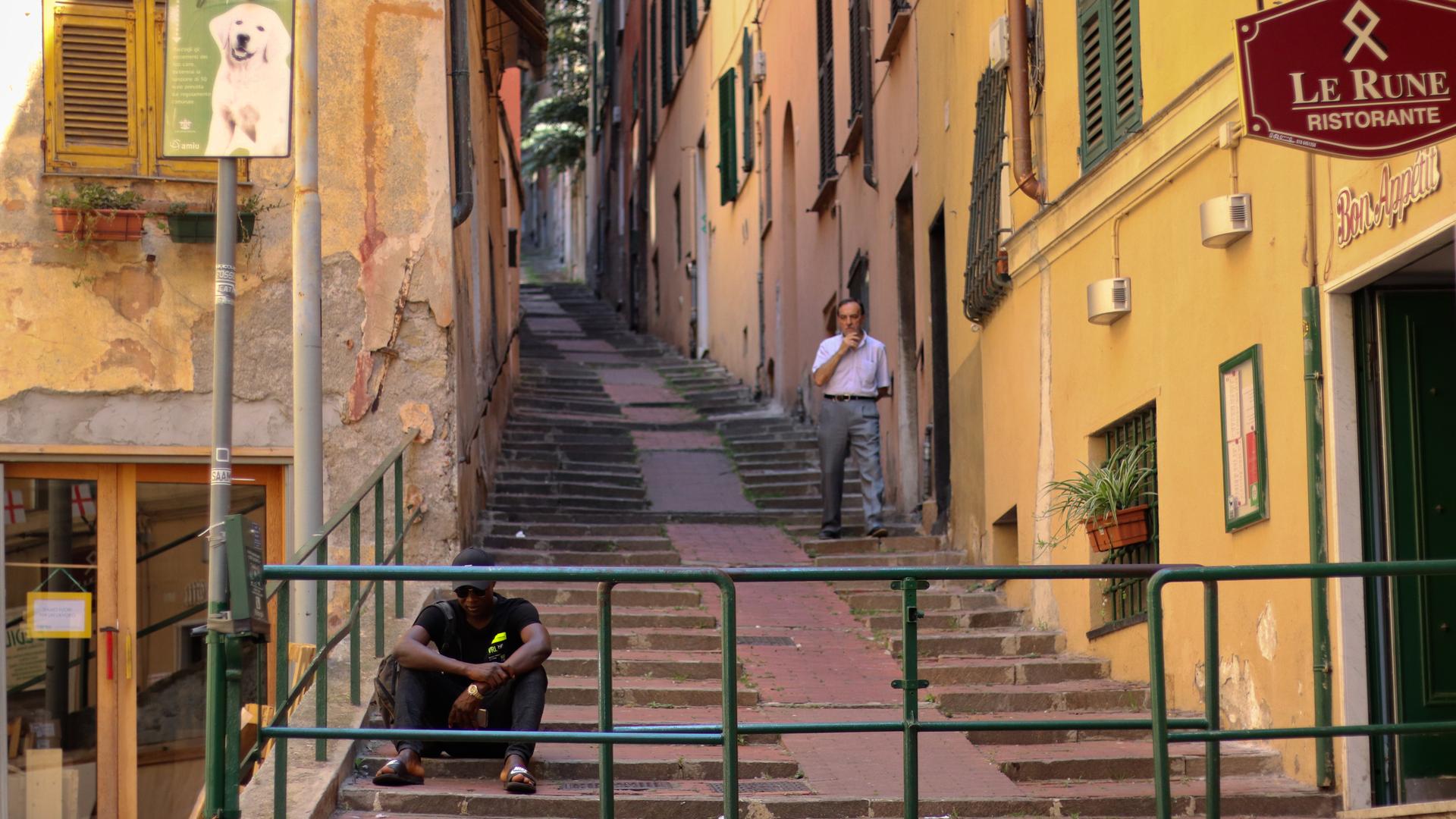Moussa, and asylum-seeker originally from Mali, sits down on a flight of stairs in Genoa’s city center. Forced to leave his room by 9 a.m., Moussa has hours to spend before he starts to work at 5 p.m., and he often kills time by walking around town.
In late May, Moussa took a tour around his new home in Coronata, near Genoa, northwestern Italy, inside a massive former hospital that now serves as a refugee center. Then, a young staff member escorted Moussa to his room. Four bunk beds took up much of the small, spare room. The room included a few small lockers to keep personal belongings, “like those you have in some schools,” Moussa says — but his backpack didn’t fit.
Moussa asked The World to protect his identity due to his pending asylum status.
In November 2018, Italy began to crack down on migrants and refugees with a new “Security Decree,” a law promoted by far-right Interior Minister Matteo Salvini. The law scraps humanitarian protection for refugees and doubles the maximum detention time for people in repatriation centers. It also cuts funding to refugee centers.
Related: After ‘Salvini decree,’ refugees face uncertain future
Moussa was given a week’s notice to vacate his old apartment in Genoa, where he stayed upon arrival as an asylum-seeker in 2016. He fled his village in Mali after a love story took a turn for the worse: Moussa faced physical retaliation or arbitrary detention for loving a woman already engaged to another man.
“It wasn’t safe to stay anywhere they could find me,” he says.
Related: Italy’s mafia gets richer as ‘security decree’ strips migrant right
His apartment in Genoa, which he shared with six other asylum-seekers, was a peaceful place to build a new life, he says. The co-operative that managed the apartment also provided him with public transport tickets and pocket money to buy his own food. But now, management told him he had no choice but to leave.
“They told me there is nothing to be done,” he says. “They said this is a ministry decision.”
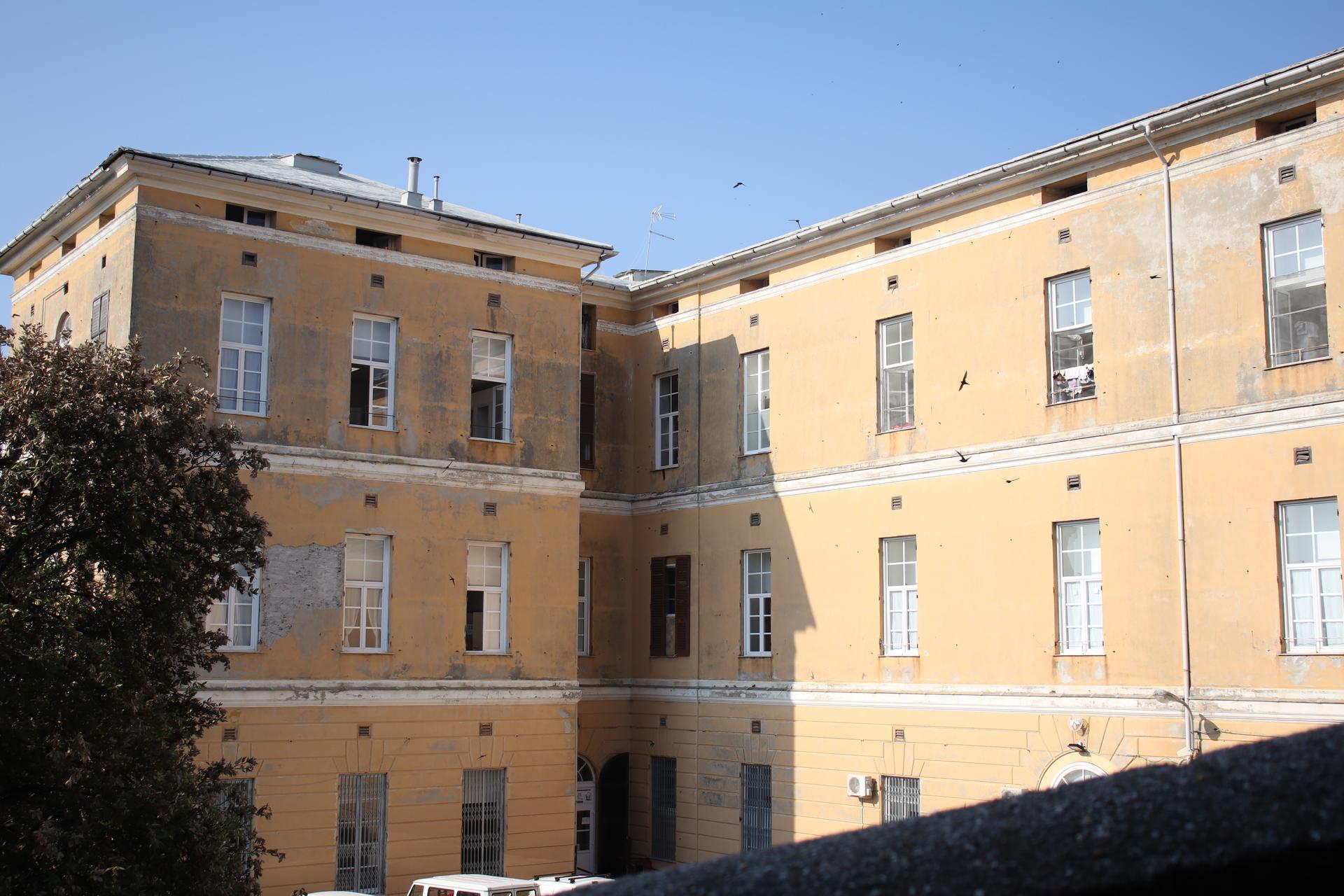
Moussa moved to the new refugee center and listened as a staff member recited the house rules: leave the room by 9 a.m. for cleaning; no return before 6 p.m.; communal lunch at set hours.
This new schedule would make getting to work more difficult. With a night shift at an Italian restaurant in downtown Genoa — over an hour from his new accommodations — he wondered about a lack of public transport after midnight. What would he do in the morning? How would he get home? Would he get enough sleep?
“We are not free — we are really not free.”
“I really don’t like it here,” he said. “We are not free — we are really not free.”
Related: Some refugees in Greece wish they hadn’t won their cases
But Moussa can’t try his luck in another country. Under the Dublin Regulation 2013, which oversees asylum in the EU, asylum-seekers must apply for asylum in the country in which they first arrive. If an asylum-seeker leaves Italy and heads to another EU country, for example, the asylum-seeker must still return to Italy to secure legal status. Vulnerable asylum-seekers who try to move to another EU country face destitution, homelessness and arbitrary detention upon their return to Italy, according to a late 2018 report by the Danish and Swiss refugee councils.
According to Simone Andreotti, president of InMigrazione, a nonprofit that studies the Italian immigration system, the decree has forced “dozens and dozens” of refugee centers to close and introduced drastic financial cuts to refugee programs that will drive asylum-seekers deeper into poverty.
Previously, the Italian government paid $40 per person, per night to provide food, shelter and social work to promote integration. That figure is now $24.
Related: How the Brexit campaign used refugees to scare voters
Charities hosting asylum-seekers in small centers and apartments can no longer do so without incurring losses; many have already closed.
The cuts have wiped out all integration initiatives for asylum-seekers. In many cases, centers can no longer provide language and culture classes, professional training, public transport vouchers, psychological support, medical care or legal aid.
As a result, hundreds of asylum-seekers are being transferred to bigger centers that can run on tight budgets. These larger centers only provide board and lodging, often cramming over 10 people in a room in locations far from cities.
‘A 10-year step back’
Critics say the decree destroys years of social work, disrupts the asylum-seekers’ path to integration and makes them more vulnerable.
Andreotti calls the decree “a 10-year step back.”
Andreotti says cuts will also affect staff capacity, leaving asylum-seekers to fend for themselves. He estimates a loss of 20,000 jobs— about half of the total number of people working in the industry.
Related: This Italian city has long welcomed immigrants. Now that commitment is being tested.
“…it’s obvious that if you push hundreds of people with a traumatic past into destitution in a new country, you expose them and the surrounding communities to exploitation, illegality and tension.”
“And it’s obvious that if you push hundreds of people with a traumatic past into destitution in a new country, you expose them and the surrounding communities to exploitation, illegality and tension,” he says.
The Association for Juridical Studies on Immigration (ASGI) said in a statement that the decree had “an apparent will to restrict individual rights and freedoms and create new forms of social tension.”
Related: Few refugee children in Turkey find a ‘home with dignity’
“It’s apparent that the decree aims to create large detention centers, not foster integration,” says Silvia Bartellini, the head of Passepartout, a Milan-based organization that has had to stop hosting asylum-seekers in apartments.
“And why should people who are just waiting for the outcome of their asylum application live as though they were in jail?”
“And why should people who are just waiting for the outcome of their asylum application live as though they were in jail?”
A new life
Today, Moussa routinely wakes up early, leaves his room by 8:30 a.m. and spends his days “doing nothing. … We have no option but to leave our rooms,” he later told The World through a text message. “I hang around [in the streets] until 5 p.m., then I go to work. If there is class, I go to school. But mostly I just hang around.” He now has to pay for everything himself, including medicine for a scalp condition that requires prescription shampoo.
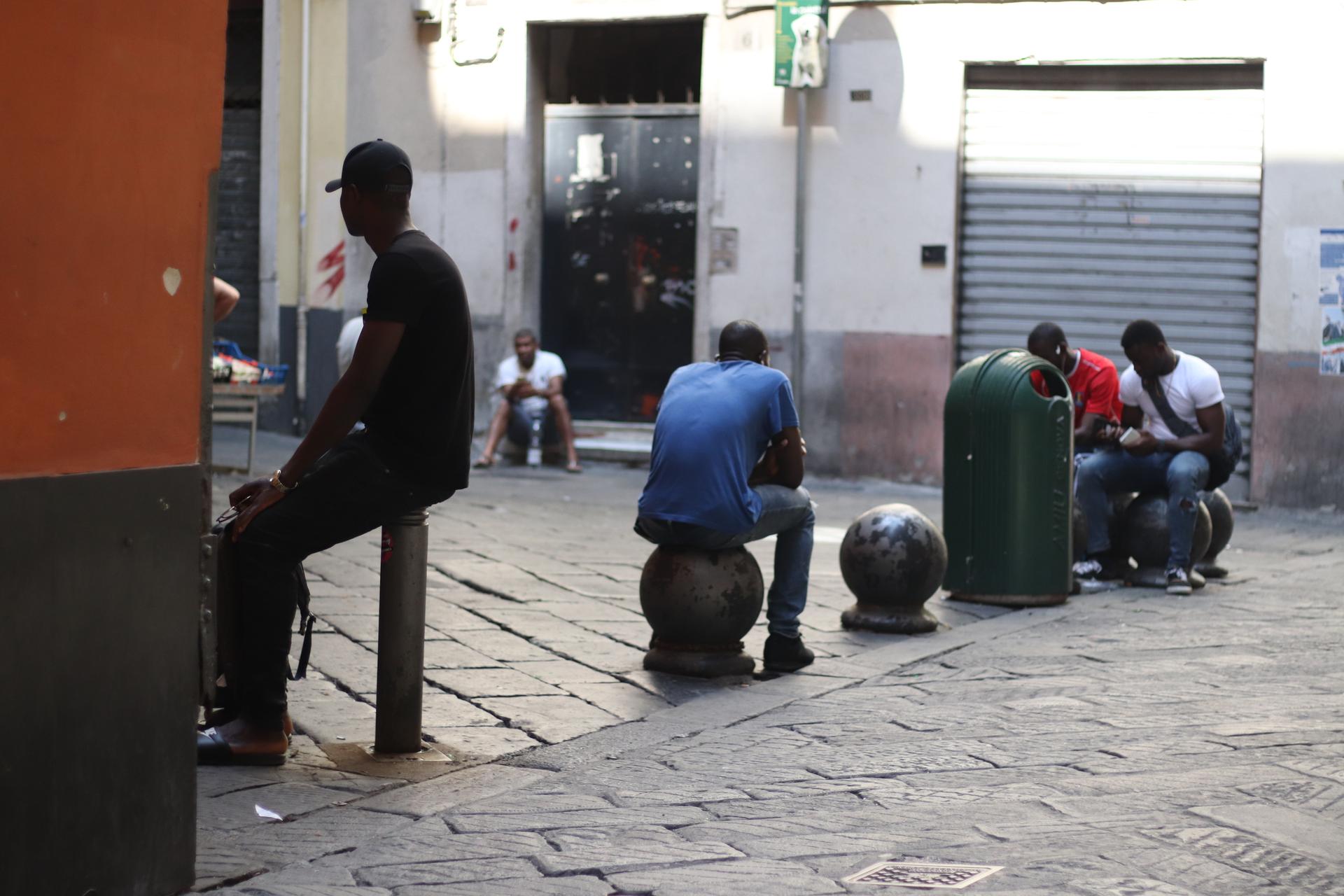
With refugee centers not offering any language or cultural classes anymore, many asylum-seekers find themselves spending most of their days on the streets.
“I have a job, but how about those who don’t? It’s a huge difficulty. If what you eat isn’t OK, you have no money to buy anything else. You don’t have the money to buy bus tickets. And if someone is sick and has no money, how will they cope?”
“I have a job, but how about those who don’t?” Moussa says. “It’s a huge difficulty. If what you eat isn’t OK, you have no money to buy anything else. You don’t have the money to buy bus tickets. And if someone is sick and has no money, how will they cope?”
Moussa’s transfer was one of the first in Italy. In 2017, over 50,000 asylum-seekers lived in small centers that accommodated fewer than 100 people. Many have since obtained refugee status but those who still live in small centers await transfer to a larger shelter.
Asylum-seekers who know about the impending transfers struggle to come to terms with it: “We see … tears every day, and some people have even lost control,” says Silvia Bartellini of Passepartout. “Some are families with 4-month-old children, or people [who] have lived under unspeakable atrocities, seen their dear ones executed or witnessed rapes.”
Some refugees want to push back.
Ibrahima, a 22-year-old Guinean in Milan, points to his chest with his thumb as he speaks outside the refugee center where he lives. “If they think they can take me to bigger centers, where we would be mixed with other men and women, they’re wrong,” he says. Ibrahima, married and the father of a 1-year-old child, says he is prepared to protest if they are moved to noisy centers or forced to share with many others.
Ibrahima asked The World to protect his identity due to his pending asylum status.
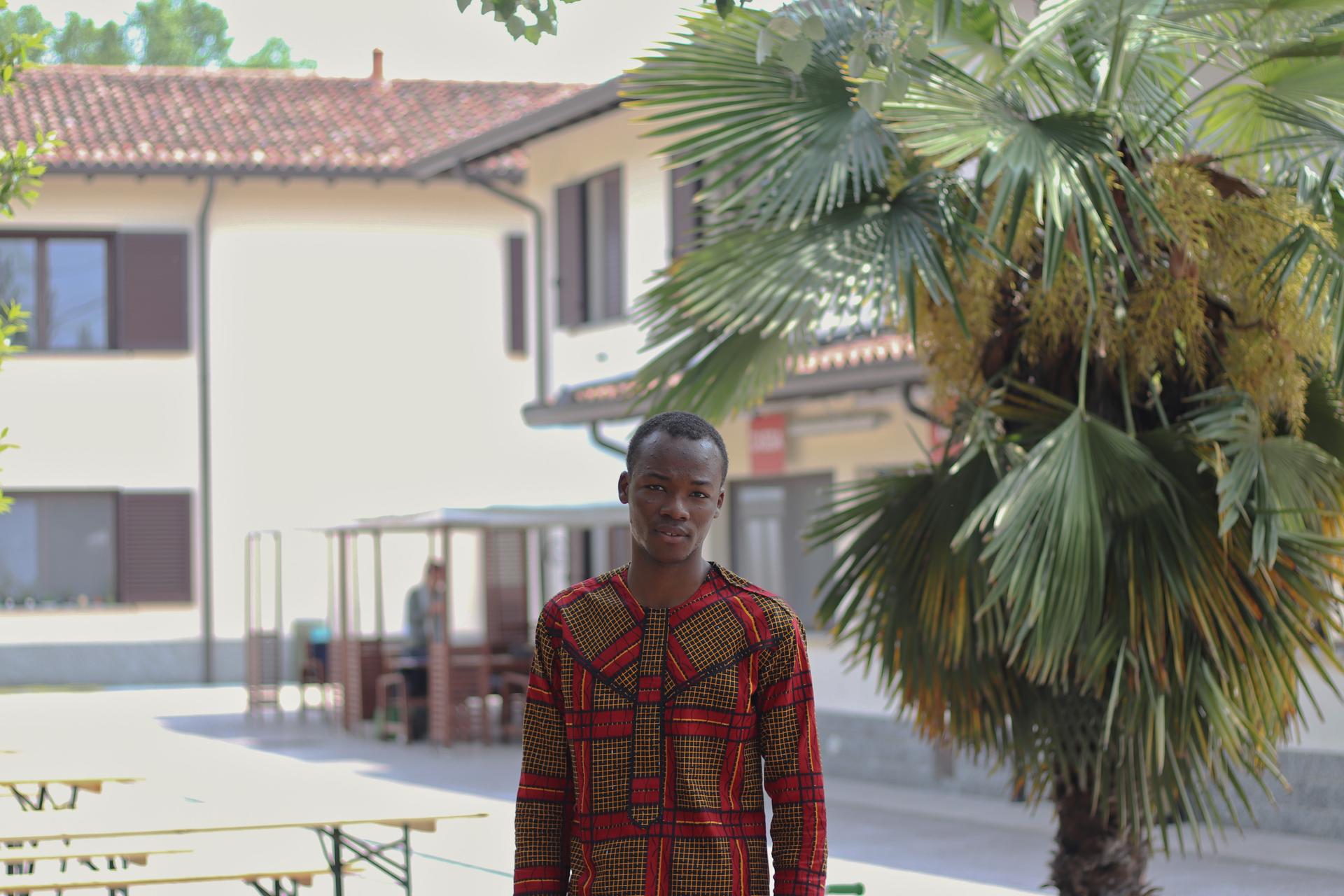
“In Italy, they can move you anywhere they want and if it’s not a good place, it’s not easy if you have a child. … They think we are animals, but we’re not.”
“In Italy, they can move you anywhere they want and if it’s not a good place, it’s not easy if you have a child,” he says, adding that when they first arrived in Italy, he and his wife slept on the kitchen floor of a refugee center in Milan while she was eight months pregnant. “They think we are animals, but we’re not.”
In Livorno, Tuscany, some asylum-seekers have chosen homelessness rather than accept the transfer — which will hurt their chances of obtaining a new permesso di soggiorno, a temporary residence permit, when their current one expires. In turn, this would expose them to the risk of being deported to their countries of origin, or to remain in Italy illegally as undocumented migrants.
Others have resorted to even more drastic measures. One morning, local authorities took some 50 asylum-seekers on a bus and escorted them out of the city of Livorno to a big refugee center near Donoratico — more than one hour away.
But when they saw where they arrived, asylum-seekers refused to get off the bus.
“They had understood they would be moved out of Livorno, but they thought it would be in a smaller town, whereas it’s open countryside there. … They were scared. Some were saying, ‘I’m not going to stay here, you took us to the desert.’”
“They had understood they would be moved out of Livorno, but they thought it would be in a smaller town, whereas it’s open countryside there,” says Cinzia Simoni of ARCI Solidarietà Livorno, the organization that hosted them before the move.
“They were scared. Some were saying, ‘I’m not going to stay here, you took us to the desert.’”
The asylum-seekers stayed on the bus and demanded to be brought back to town. In reaction, local authorities asked Simoni to hand in the details of their temporary residence permit with the understanding that they would revoke it on the spot.
In an attempt to buy some time, Simoni said she didn’t have the permits and phoned the asylum-seekers aboard the bus several times, hoping to broker a deal.
“We stayed glued to the phones. We tried to convince them, make them think that if they did not get off, they would find themselves on the streets,” says Simoni. “We didn’t tell them about the residence permit.”
“It was a tragic day,” she adds.
At one point, the asylum-seekers agreed to be taken back to the station — but where would they go then? The talks continued.
The ordeal ended with the asylum-seekers surrendering after three or four tense hours. They walked off the bus, out in the countryside, into their new home.
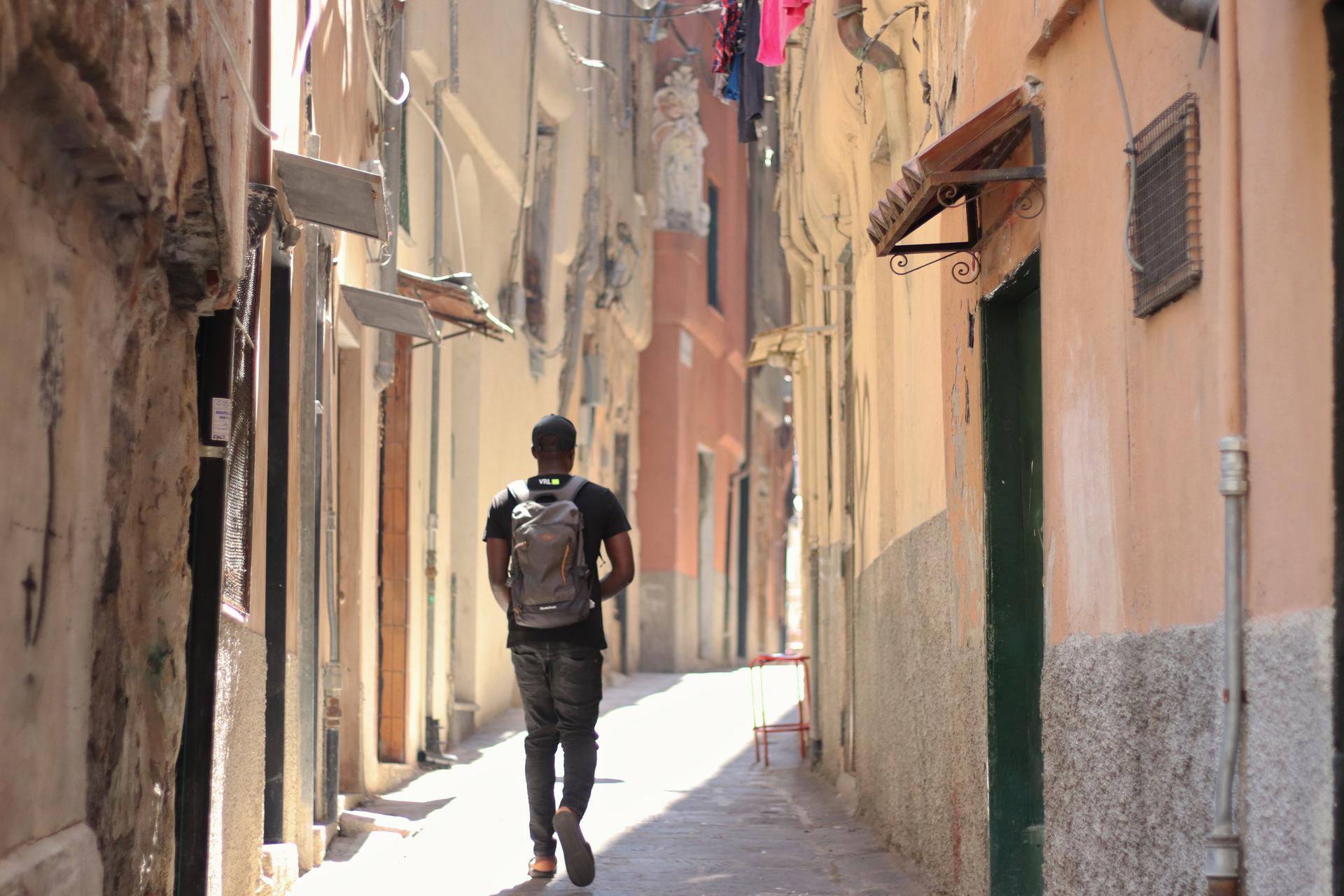
We want to hear your feedback so we can keep improving our website, theworld.org. Please fill out this quick survey and let us know your thoughts (your answers will be anonymous). Thanks for your time!
